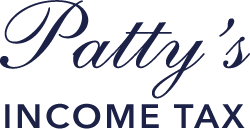The new year is just over a week old, but it’s almost time to get cracking on those 2019 tax returns.
Proactive taxpayers can start submitting last year’s tax returns to the IRS as early as Jan. 27. As always, you have until April 15 to file your 2019 tax return.
While you can ask the taxman for a six-month extension to submit your paperwork, you’ll need to pay the taxes you owe by April 15.
The IRS predicts it will receive about 150 million individual income tax returns this season.
Here’s one reason to get started early: Scammers who make off with your Social Security number may rush to file fraudulent returns to snag your tax refund.
Another reason to get rolling: Congress renewed a package of tax credits and deductions at the end of 2019 and now they’re up for grabs.
“Some tax extenders were passed over the holidays,” said Lisa Greene-Lewis, CPA and TurboTax blog editor. “People will want to have the appropriate forms related to them.”
Those last-minute tax breaks include deductions for qualified tuition expenses and mortgage insurance, as well as a lower threshold to deduct qualifying medical expenses.
Reporting income
Employees should expect a Form W-2 from their employer by Jan. 31. This document will detail the amount of wages earned, Social Security and Medicare taxes paid, and state and federal taxes withheld.
If you’re an independent contractor, you should expect a Form 1099-MISC from businesses who’ve hired you. Entrepreneurs and freelancers should have already been tracking their income over all of 2019, paying estimated taxes every quarter.
Here’s where things can get tricky.
Gig economy workers might not get a 1099-MISC; they may receive a 1099-K, which should come in by Jan. 31. This form will show payments received from debit and credit card transactions.
“In that first year of operations, small business owners don’t think about keeping track of all their expenses,” said Andy Phillips, director at the Tax Institute at H&R Block.
See below for the most important tax forms and when you can expect them:
People who participated in a high-deductible health plan last year with a health-savings account should expect to receive some additional documents, too.
HSAs allow you to make tax-deductible or pretax contributions, have them grow tax-free and then use the money free of taxes to pay for qualified medical expenses.
If you wound up using any of the cash last year, the bank that administers your HSA will send you a 1099-SA by mid-February.
Some taxpayers are going to be forced to wait well into the spring to file.
Investors in partnerships have to wait for a Schedule K-1 from the entity. This document spells out the filer’s share of income, losses and dividends.
Taxpayers awaiting a K-1 may wind up requesting an extension with the IRS.
Documents for retirees
Retirees’ days of collecting a W-2 may be over, but they should still watch their mailbox.
That’s because the Social Security Administration sends out a statement in January showing the amount of benefits you received in the prior year.
If you took a withdrawal from your 401(k) plan or your individual retirement account — or if you received a distribution from a pension or annuity, you should also be on the lookout for Form 1099-R.
Bitcoin reporting
Sharp-eyed taxpayers will notice that the IRS is asking a new question on Schedule 1 of the 2019 tax return: “At any time during 2019, did you receive, sell, send, exchange or otherwise acquire any financial interest in any virtual currency?”
The agency has signaled that it would take a closer look at cryptocurrency holdings, including sending letters to more than 10,000 taxpayers who may have failed to report income and pay back taxes.
The problem taxpayers face with reporting their crypto transactions is that tracking the cost basis or original value of the asset, along with the transactions, can be cumbersome.
“Sales and transfers of cryptocurrency are treated like sales of property, but the problem is that the reporting is very sporadic and in many cases you get no Form 1099,” said Phillips of H&R Block. “You need to stay on top of your records.”
Credits and deductions
Get ready to do some legwork to nab credits and deductions.
Parents will need additional documents from their child-care provider in order to claim the dependent care tax credit.
Meanwhile, if you’re planning to itemize deductions on your 2019 return and you made hefty charitable donations, make sure you’ve gathered all of the acknowledgement letters from your charities.
See below for a list of relevant tax breaks and the paperwork you’ll need:
While the increased standard deduction has made it less likely for taxpayers to take itemized deductions, you won’t know until you haul in your receipts and crunch the numbers.
“There’s the process of determining whether you’re better off claiming one or the other, so you’ll want to keep records of charitable donations and out of pocket medical expenses,” Phillips said.
Source: CNCBC.com
